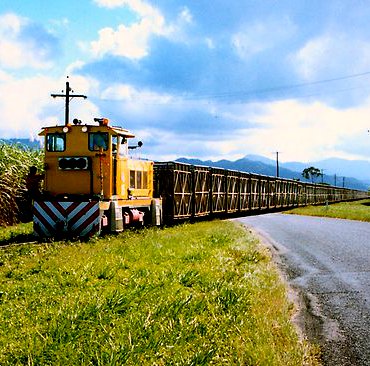Sweet trains strain against old alarms
 Cane growers say their safety systems need to step into the digital age; a warning that may be underscored as the cane harvest gets underway.
Cane growers say their safety systems need to step into the digital age; a warning that may be underscored as the cane harvest gets underway.
An old safety alert system on cane locomotives has become redundant, some operators say, relying on analogue technology which has not been installed on new vehicle for several years.
The EV alert consisted of transmitters to send a signal to a receiver in nearby vehicles, warning motorists to prevent collisions during the busy Queensland harvest season.
But the out-dated equipment can no longer be properly repaired or replaced, and industry members say it is not even included on new locomotives.
There have been a number of derailments already (though EV alert systems have not played a role) as the 2014 cane-crushing season takes off. One locomotive was said to have run into cane bins full of cut product at a site in Bundaberg, causing it to come off the tracks. A few days earlier a sugar cane train on its way to Mossman Mill derailed on the South Mossman River Rail Bridge, losing seven of its 36 bins in the process.
Burdekin Cane Growers representative Wayne Smith has told the ABC the industry needs a new standard.
“It’s been proven over the years that it has a very high safety benefit, particularly when the cane harvest is being conducted and locomotives are out there active and vehicles are operating on farms,” he said.
The next generation of technology is in fact already available, and has been for some time. The companies behind newer alert systems say there is no reason why they should not have been picked up.
But plenty of operations have never used an alert system.
Herbert Cane Growers spokesperson Peter Sheedy says no system is 100 per cent fail-proof, and they could all cause problems.
“People do need to have good habits about taking care and looking out with due care,” he said.
“The concern with the EV alert system was that it may have encouraged reliance on it when there were some black spots.
“You wouldn’t want to have people relying totally on that when it wasn’t failsafe.”








 Print
Print